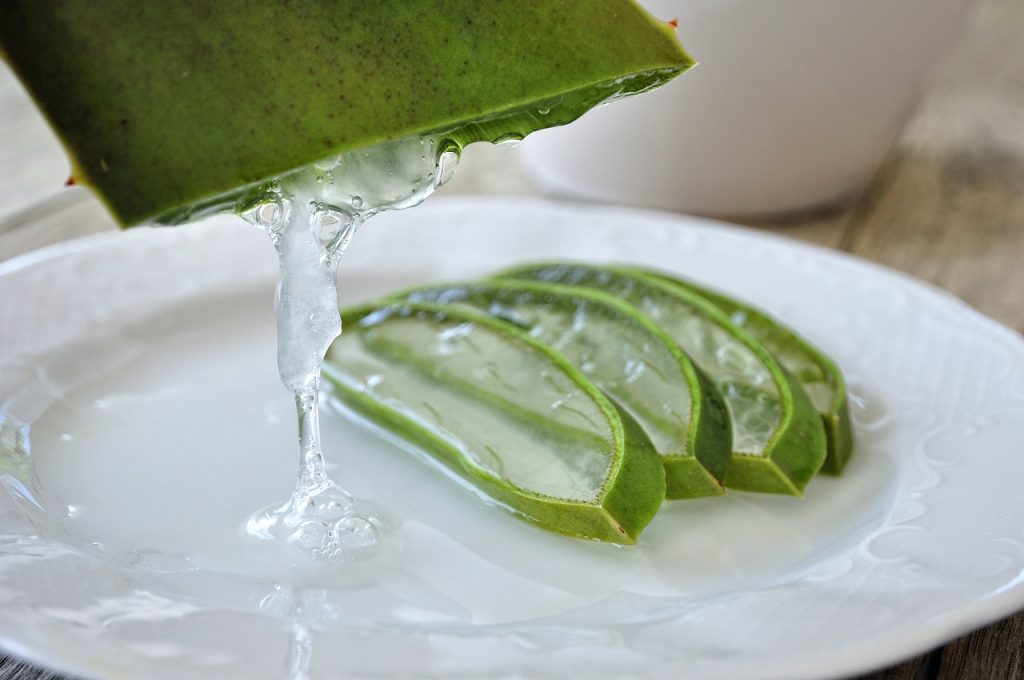Aloe vera, often referred to as the “plant of immortality,” has been used for centuries for its remarkable healing and soothing properties. This succulent plant, with its thick, gel-filled leaves, is a staple in traditional medicine and modern skincare alike. But aloe vera is more than just a topical remedy for sunburns—it’s a powerhouse of nutrients and bioactive compounds that offer a wide range of health benefits.
In this blog post, we’ll explore the properties of aloe vera and how it can enhance your health and well-being.
What Makes Aloe Vera So Special?
Aloe vera is packed with over 75 active compounds, including vitamins, minerals, enzymes, amino acids, and antioxidants. Here’s a breakdown of its key components:
- Vitamins: A, C, E, and B vitamins (including B12, folate, and choline).
- Minerals: Calcium, magnesium, zinc, chromium, selenium, and potassium.
- Enzymes: Amylase, lipase, and others that aid digestion and reduce inflammation.
- Amino Acids: Contains 20 of the 22 essential amino acids, including 7 of the 8 essential ones.
- Antioxidants: Polyphenols and other compounds that fight free radicals and oxidative stress.
These properties make aloe vera a versatile remedy for both internal and external use.
Top Health Benefits of Aloe Vera
1. Soothes Skin and Promotes Healing
Aloe vera is most famous for its skin-healing properties. The gel inside its leaves is rich in polysaccharides, which help repair skin cells and promote collagen production. It’s incredibly effective for:
- Treating sunburns and reducing redness.
- Moisturizing dry skin without clogging pores.
- Accelerating wound healing and reducing scarring.
- Relieving skin conditions like eczema, psoriasis, and acne.
2. Boosts Digestive Health
Aloe vera juice is a popular remedy for digestive issues. It contains enzymes that aid in breaking down sugars and fats, improving nutrient absorption. It also has natural laxative properties, which can help relieve constipation. Additionally, aloe vera soothes the digestive tract, making it beneficial for conditions like irritable bowel syndrome (IBS) and acid reflux.
3. Supports Immune Function
The antioxidants in aloe vera, such as vitamins C and E, help strengthen the immune system by neutralizing free radicals and reducing inflammation. Regular consumption of aloe vera juice can help your body fight off infections and maintain overall health.
4. Enhances Oral Health
Aloe vera’s antibacterial and anti-inflammatory properties make it an excellent natural remedy for oral health. It can help:
- Reduce plaque and gingivitis.
- Heal mouth ulcers and canker sores.
- Freshen breath and promote healthy gums.
5. Aids in Detoxification
Aloe vera is a natural detoxifier, helping to cleanse the liver and kidneys. Its high water content and nutrients support the body’s natural detox processes, flushing out toxins and improving overall vitality.
6. Promotes Hair Health
Aloe vera is a popular ingredient in hair care products for good reason. It can:
- Soothe an itchy, dry scalp.
- Reduce dandruff and promote a healthy scalp environment.
- Strengthen hair and add shine.
- Stimulate hair growth by improving blood circulation to the scalp.
7. Helps Manage Blood Sugar Levels
Some studies suggest that aloe vera may help regulate blood sugar levels, making it a potential aid for people with type 2 diabetes. Its compounds improve insulin sensitivity and help stabilize blood sugar spikes.
8. Reduces Inflammation
Aloe vera contains compounds like salicylic acid and plant sterols that have anti-inflammatory effects. This makes it beneficial for reducing inflammation in conditions like arthritis, muscle pain, and even inflammatory skin conditions.
How to Use Aloe Vera
Aloe vera is incredibly versatile and can be used in various ways:
Topical Use
- Skin Care: Apply fresh aloe vera gel directly to the skin to soothe burns, moisturize, or treat acne.
- Hair Mask: Mix aloe vera gel with coconut oil or yogurt for a nourishing hair treatment.
Internal Use
- Juice: Drink aloe vera juice (ensure it’s food-grade and free of aloin) to support digestion and detoxification.
- Smoothies: Add a tablespoon of aloe vera gel to your favorite smoothie for an extra nutrient boost.
Oral Care
- Toothpaste: Use aloe vera-based toothpaste for a natural alternative to conventional products.
- Mouthwash: Rinse with diluted aloe vera juice to promote oral health.
Precautions and Side Effects
While aloe vera is generally safe, it’s important to use it responsibly:
- Topical Use: Always do a patch test before applying aloe vera to your skin to check for allergies.
- Internal Use: Avoid consuming aloe vera latex (the yellow sap near the leaf’s edge), as it can cause digestive discomfort. Stick to food-grade aloe vera products.
- Consult a Doctor: If you’re pregnant, breastfeeding, or taking medications, consult your healthcare provider before using aloe vera internally.

Aloe vera is truly a gift from nature, offering a wide range of health benefits for your skin, body, and overall well-being. Whether you’re using it to soothe a sunburn, improve digestion, or boost your immune system, this miracle plant is a must-have in your wellness toolkit.
Have you tried aloe vera for its health benefits?
Share your favorite uses and tips in the comments below!

